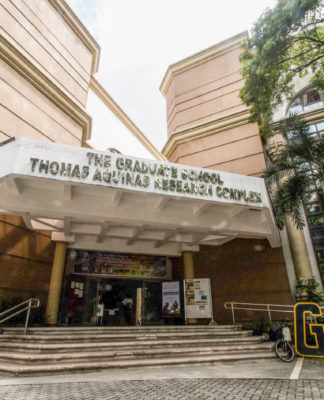 “TIMES really have changed, haven’t they? Not so long ago, you could only see vast plainfields and fishponds and nipa huts all around our community,” my Lolo told me during our hometown vacation last semestral break. “I’m quite surprised many houses here in Pangasinan are now as big and as luxurious as those in Manila!”
“TIMES really have changed, haven’t they? Not so long ago, you could only see vast plainfields and fishponds and nipa huts all around our community,” my Lolo told me during our hometown vacation last semestral break. “I’m quite surprised many houses here in Pangasinan are now as big and as luxurious as those in Manila!”
“That’s because many of our neighbors have relatives working abroad, and have been earning enough to build such houses,” my Lola replied. “‘Yung iba naman, katas ng jueteng!.”
Lola then recalled how one of her amigas was able to send her children to private schools until they graduated in college, out of the money she gained from betting in jueteng. Likewise, Lolo related how his kumpare has found his way to prosperity after becoming a kabo or the person who oversees the kubrador (collector).
I may not have enough idea how rampant jueteng has been in our hometown, but the presence of such houses and “stories of success” only manifest how this illegal numbers racket has continued changing the lives of some of our townsmen from misery to instant fortune.
One could win as much as P900 in jueteng with only a peso as bet, making it popular among the poor. One has to bet two or three numbers from 1 to 37 and choose the type of play from the various gaming schemes, such as casas (betting on three numbers), pompiang (betting on a similar number), and tumbok and sahod (betting on the order of numbers drawn). Just hope that the best of luck is in your favor once the numbers are drawn.
And with the charm and excitement of jueteng, many have continued to patronize this centuries-old game wrongly believed to have been introduced by the Spanish conquistadors. (It evolved during the Spanish era but it was not exactly introduced by the colonizers.) But no matter how we conceal such misdemeanor with a charitable image, even in the passage of time, it will always remain appalling.
Recently, Pangasinan Gov. Amado Espino, Jr. graced the headlines for allegedly being linked with jueteng operators in the province. Whistleblower and Bugallon Mayor Rodrigo Orduña has filed a plunder case against Espino before the Office of the Ombudsman, exposing the alleged P900 million in protection money the governor received from the gambling operators.
Orduña, who also admitted his involvement in the underground lottery, said Espino—a retired police officer—is the “big boss” of jueteng operations in the province since he became governor in 2007.
But the illegal numbers racket is rampant in other provinces apart from Pangasinan. Lingayen-Dagupan Archbishop Emeritus Oscar Cruz said jueteng is alive in many provinces of Luzon, including Tarlac, President Aquino’s home province. The prelate said he’s not surprised about how extensive jueteng is played in Luzon since the President himself has declared its eradication is not a priority in his administration.
Sen. Miriam Defensor-Santiago, meanwhile, said the illegal numbers racket is obviously prevalent in the six cities of Metro Manila: Quezon City, Makati, Manila, Mandaluyong, Pasay, and San Juan, adding that it is the “biggest source of corruption in the country.”
Presidential Spokesperson Edwin Lacierda, in defense, said Aquino would not tolerate the multi-billion peso illegal gambling industry, adding that whistleblowers must support allegations with hard evidence.
Jueteng, which is commonly concealed in the form of small town lottery or based in the winning results of jai-alai, a sport involving bouncing a ball off a walled space, is just among the concrete manifestations of assaulting public interest by appealing to their economic deficiencies. Worse, some government officials are tolerating this illegal activity in exchange for protection money from jueteng lords, making it more difficult to eradicate. As Santiago lamented, the roots of jueteng “have gone down so deep that it will be very difficult to exterminate.”
There should be urgency for a national policy in order to suppress the flourishing of this multi-billion peso illegal gambling. Should the government begin prosecuting government and police and military officials involved in jueteng, citizens, in the very least that they can do, must stop betting and tolerating the numbers game. After all, discipline is needed to curb one’s destructive appetite.















